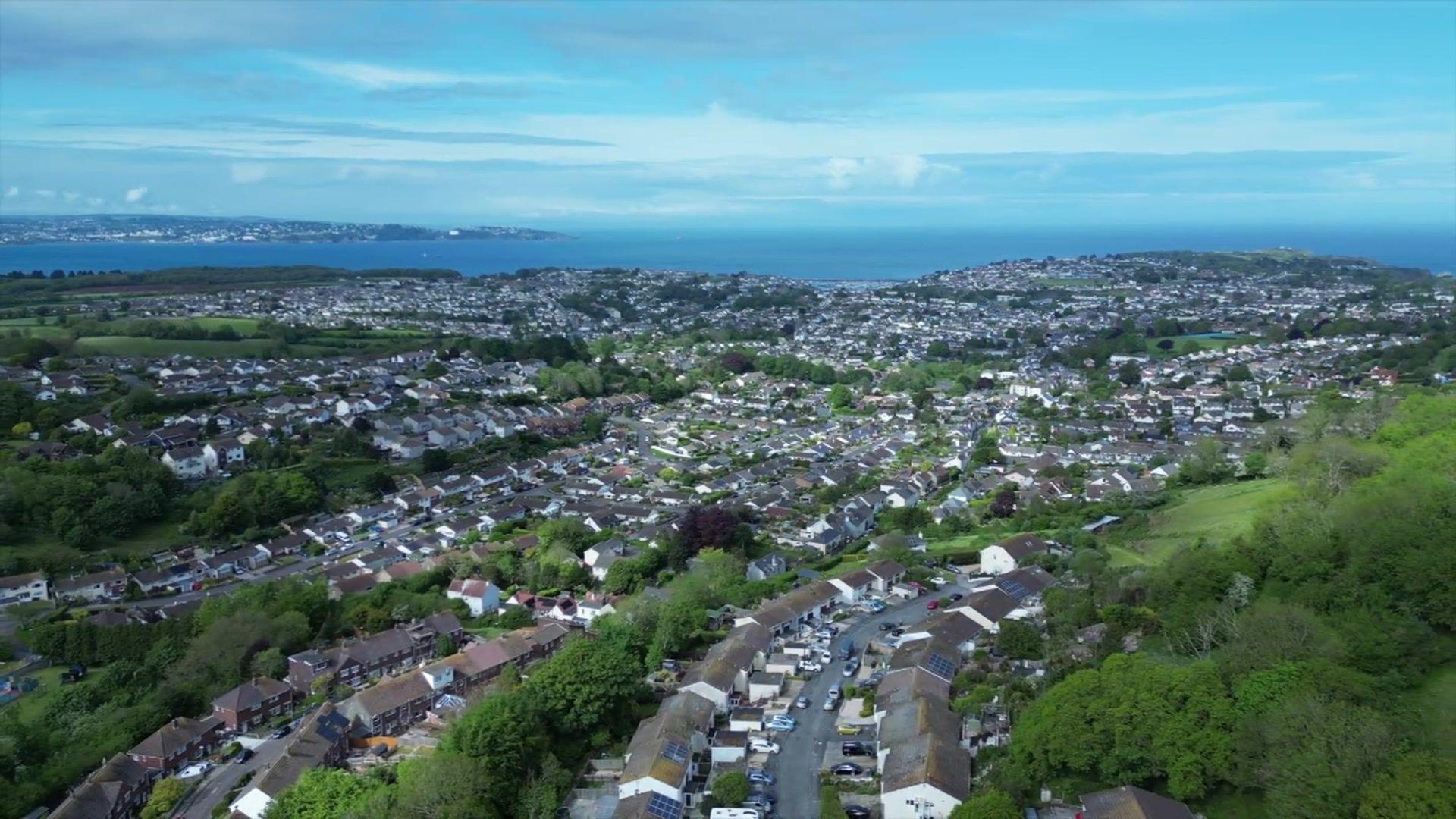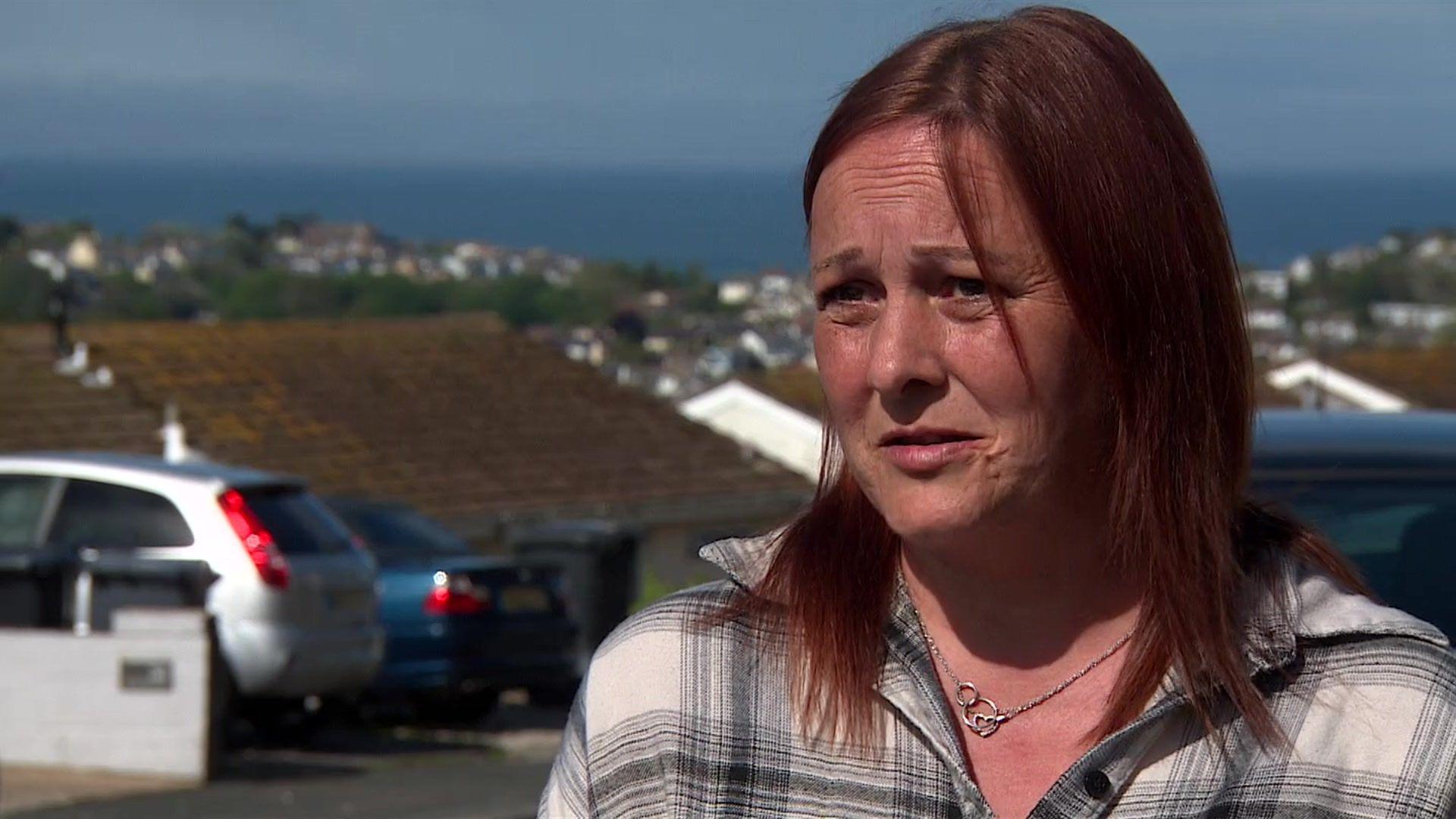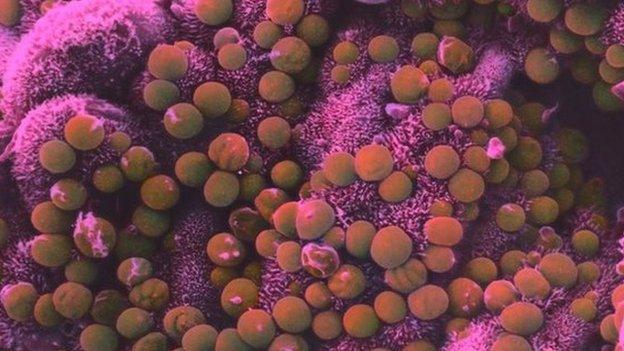Sixteen people confirmed with waterborne disease

A total of 16 cases and about 70 reports of diarrhoea and vomiting have been confirmed in Brixham
- Published
Sixteen cases of a diarrhoea-type illness, called cryptosporidium, have been confirmed in Devon by the UK Health Security Agency.
The agency said it was working with Torbay Council, South West Water (SWW), NHS Devon and the Environment Agency to investigate the confirmed cases, and about 70 further reported cases of diarrhoea and vomiting of residents in Brixham.
It said cryptosporidiosis was "predominantly a waterborne disease" and infections can be caused by drinking contaminated water or swallowing it in swimming pools or streams.
SWW advised customers to use their water as normal, and that it would be kept "under review".
It said: “We have reviewed the operation of our water treatment works and the water quality data from those sites, which show us there have been no issues with the treated water.
“As agreed today with public health partners, we are carrying out further monitoring of the local supply area and we’ll continue working closely with them on their investigation."
'More cases anticipated'
The UK Health Security Agency (UKHSA) said investigations into the source were ongoing, and those who had reported symptoms were being contacted.
Sarah Bird, consultant in health protection at UKHSA South West, said more cases were anticipated.
She said: "At this stage a source has not been identified, and more information will be shared as soon as it is available.
“For most people, cryptosporidium symptoms can be managed at home without needing medical advice."
'Wash hands thoroughly'
Symptoms include watery diarrhoea, stomach pains, dehydration, weight loss and fever which can last for two to three weeks.
UKHSA said children aged between one and five years old were most likely to be affected, and that "most healthy people will recover fully".
Ms Bird said: "Anyone with a diarrhoeal illness should drink plenty of water to prevent dehydration and if they have severe symptoms like bloody diarrhoea, they should contact NHS 111 or their GP surgery.
"Please stay off school and work for 48 hours since the last episode of illness and away from swimming pools for 14 days after the last episode of illness."
Dr Lincoln Sargeant, director of Public Health at Torbay Council, advised people to "wash their hands thoroughly when handling food and after using the toilet, to help prevent the spread of further infection".

Tanya Matthews said people and pets in her street had been affected
Tanya Matthews said her family had been unwell, and that she had been asking SWW what was happening.
She said: "They're saying that it's nothing to do with the water supplies to our homes.
"Pretty much every home in our street, everyone has this illness - even pets are getting ill."
Alex Riley and his family were boiling their water to avoid further illness.
He said: "We boil it then put it through the filter - we always filtered our water before to try and reduce the chlorine in it.
"Obviously that doesn't do anything if it the water is infected with something like this, it doesn't remove it from the system."
Richard Killick said he and his daughter had both been affected.
"I just thought it was something that I'd eaten, but obviously when you look on Facebook pages and see how many people... they're all saying higher Brixham," he said.
Follow BBC Devon on X (formerly Twitter), external, Facebook, external and Instagram, external. Send your story ideas to spotlight@bbc.co.uk, external.
- Published7 August 2015
